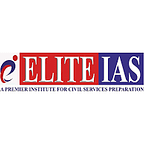Key Factors Influencing UPSC Interview Marks
The Union Public Service Commission (UPSC) interview, also known as the Personality Test, is a crucial stage in the Civil Services Examination (CSE) process. The interview carries 275 marks out of the total 2025 marks, making it a significant determinant of the final ranking. Various factors influence the marks awarded during this phase. Here are the key factors influencing UPSC interview marks:
1. Personality Traits
The interview panel assesses candidates on various personality traits such as confidence, integrity, leadership qualities, emotional stability, and social skills. These traits are essential for a career in civil services where officers need to handle diverse and challenging situations.
2. Communication Skills
Effective communication is critical. The panel looks for clarity of thought, coherence in articulation, and the ability to express ideas succinctly. Good command over language, both English and the candidate’s mother tongue (if opted for), plays a vital role.
3. Current Affairs Knowledge
A sound understanding of current national and international events is crucial. The panel often questions candidates on recent happenings to gauge their awareness and analytical abilities. This demonstrates a candidate’s engagement with ongoing issues.
4. General Knowledge and Optional Subject
Candidates are expected to have a thorough understanding of their optional subject and general studies topics. The depth of knowledge, analytical thinking, and ability to interlink different subjects can significantly impact the marks.
5. Understanding of Socio-Economic Issues
The panel evaluates candidates on their understanding of socio-economic issues facing the country. Insightful opinions on social justice, economic policies, and developmental challenges showcase a candidate’s preparedness for administrative roles.
6. Behavior and Attitude
A candidate’s behavior, attitude towards public service, and ethical standards are crucial. Humility, respectfulness, and a positive attitude can leave a lasting impression on the panel. Arrogance or overconfidence can adversely affect the marks.
7. Body Language and Etiquette
Non-verbal communication, including posture, eye contact, and overall body language, is closely observed. Good etiquette, such as polite greetings and attentive listening, contribute positively to the overall assessment.
8. Problem-Solving Skills
The interview often includes situational questions to assess problem-solving and decision-making skills. Logical reasoning, practical approach, and innovative solutions to hypothetical scenarios demonstrate a candidate’s readiness for real-life challenges.
9. Past Achievements and Experiences
Candidates with notable academic achievements, work experience, or involvement in extracurricular activities often have an edge. These aspects highlight a candidate’s diverse skill set and ability to balance various responsibilities.
10. Psychological Attributes
The psychological robustness of a candidate, including stress management, adaptability, and the ability to remain calm under pressure, is evaluated. The interview may include stress interviews to test these attributes.
Conclusion
Scoring high in the UPSC interview requires a balanced blend of knowledge, personality, and soft skills. Aspiring candidates must focus on holistic development, stay updated with current affairs, and consistently work on improving their communication and interpersonal skills. By understanding and enhancing these key factors, candidates can significantly improve their chances of achieving high marks in the UPSC interview.
